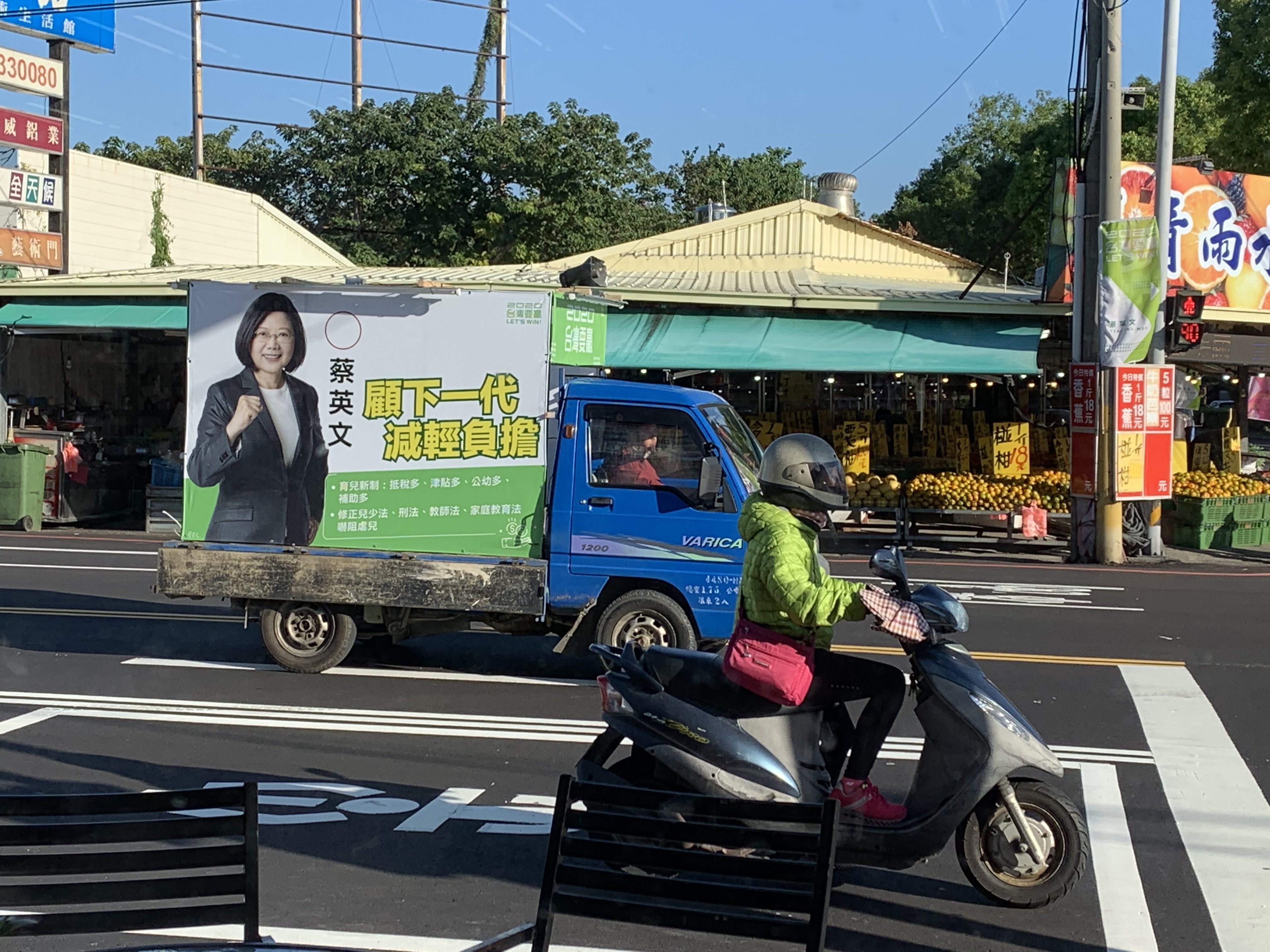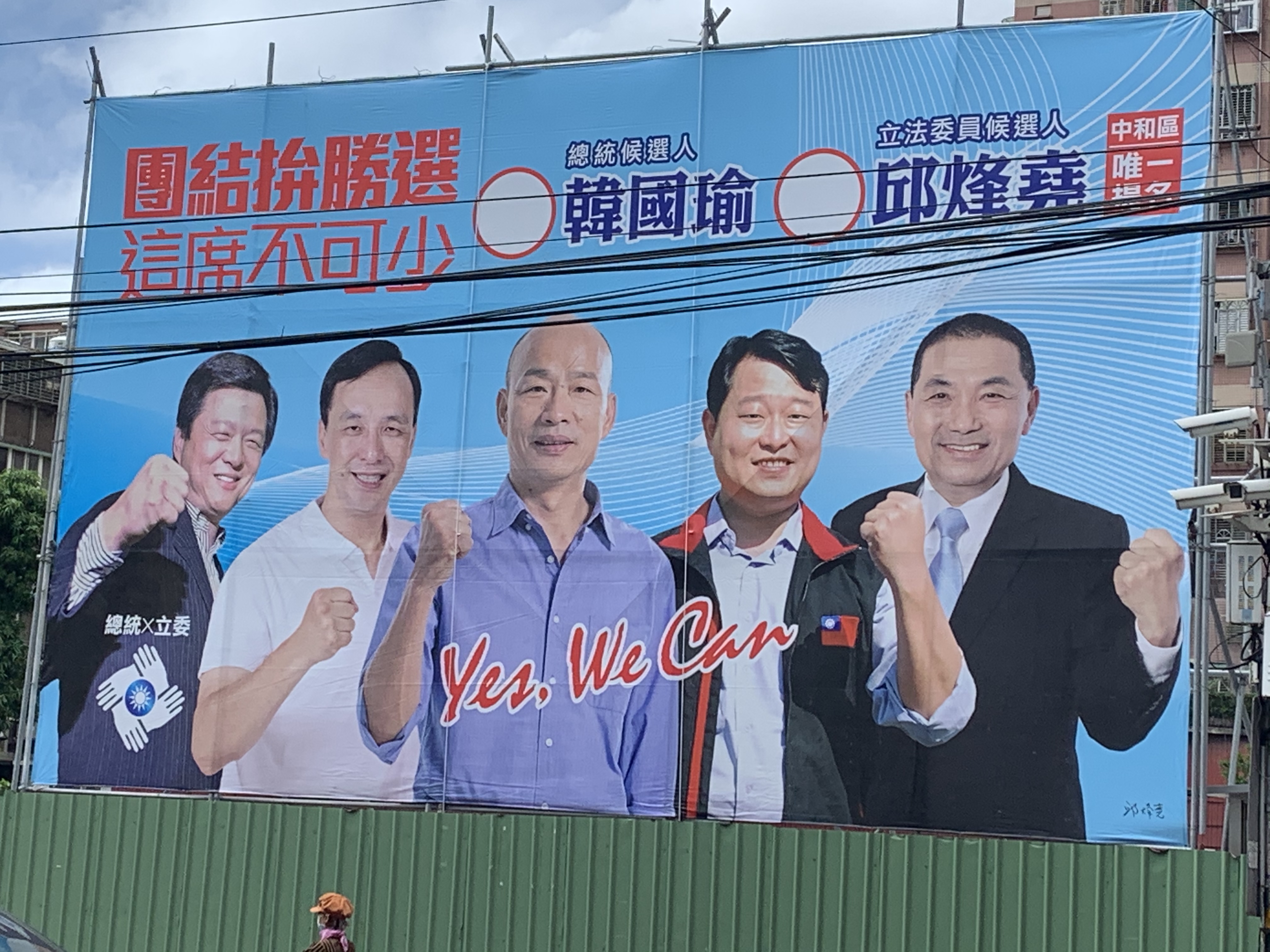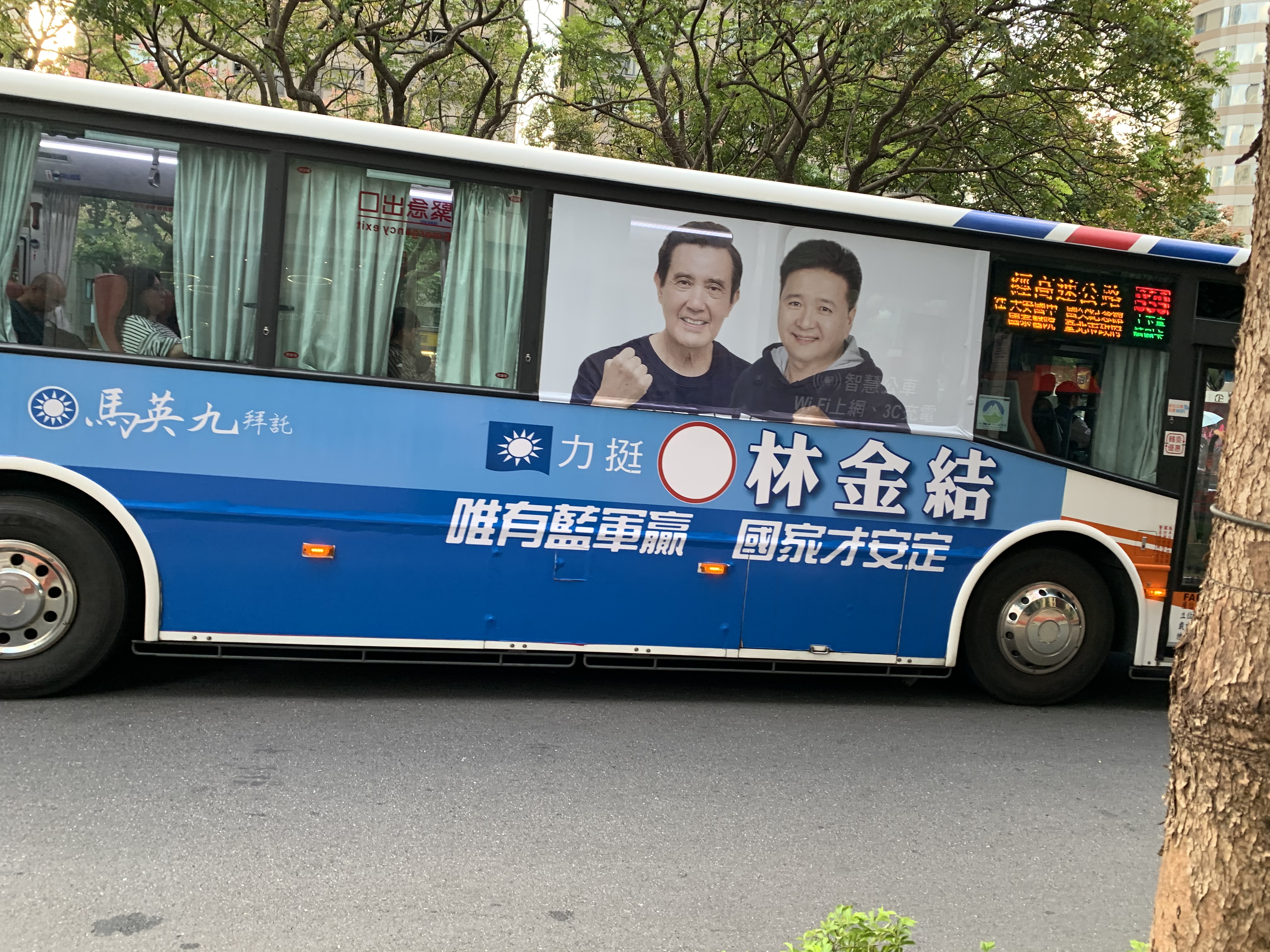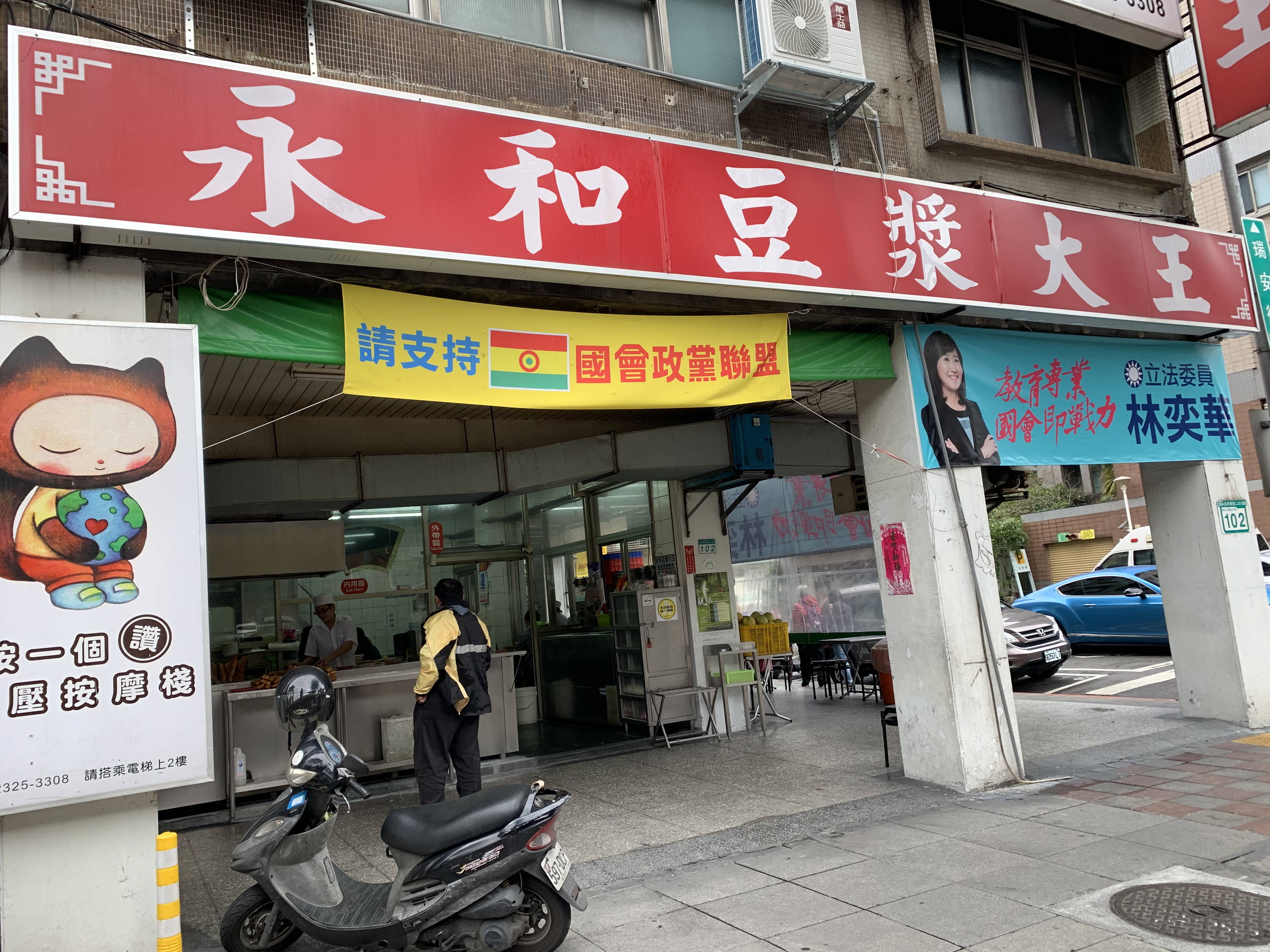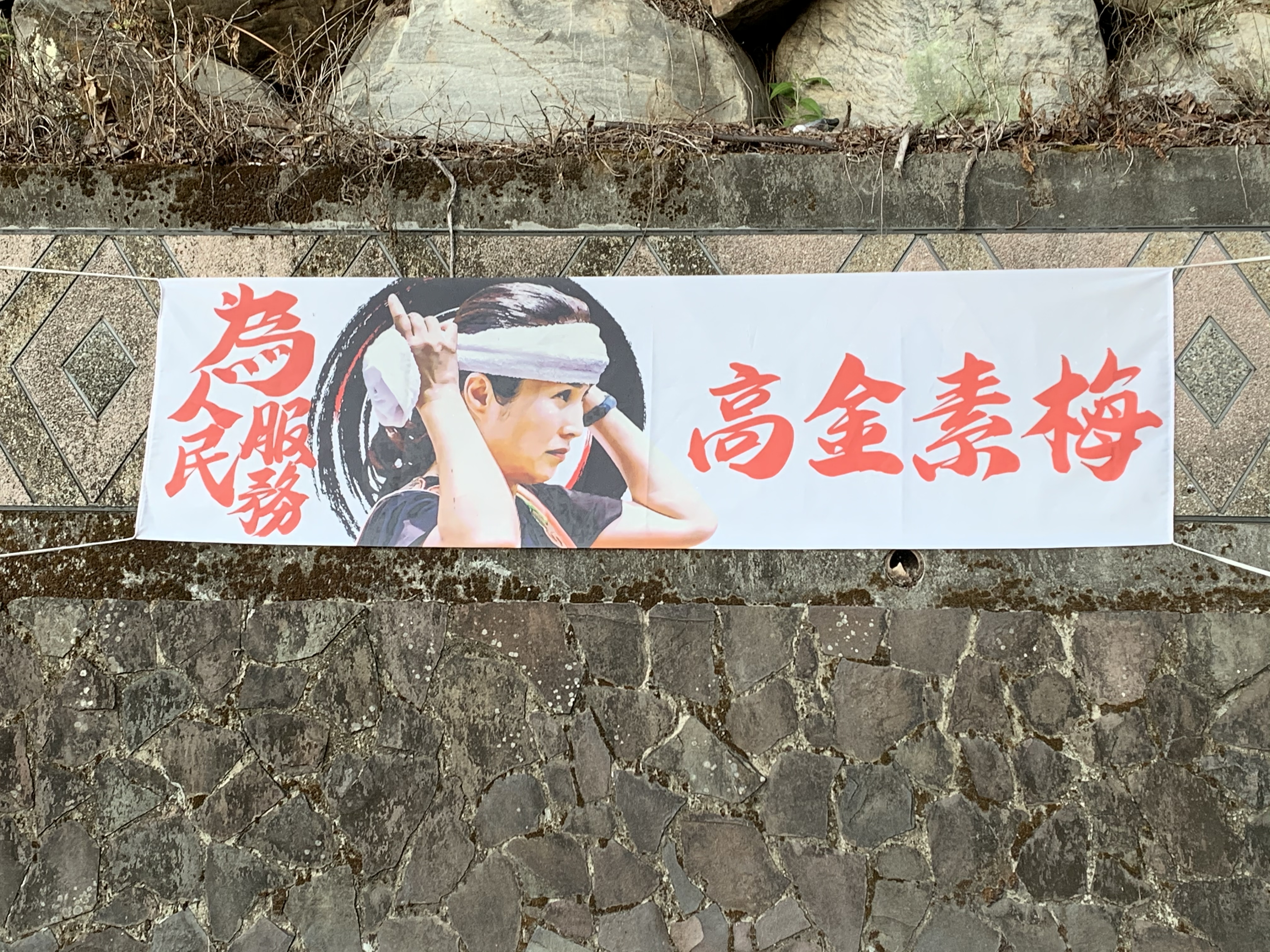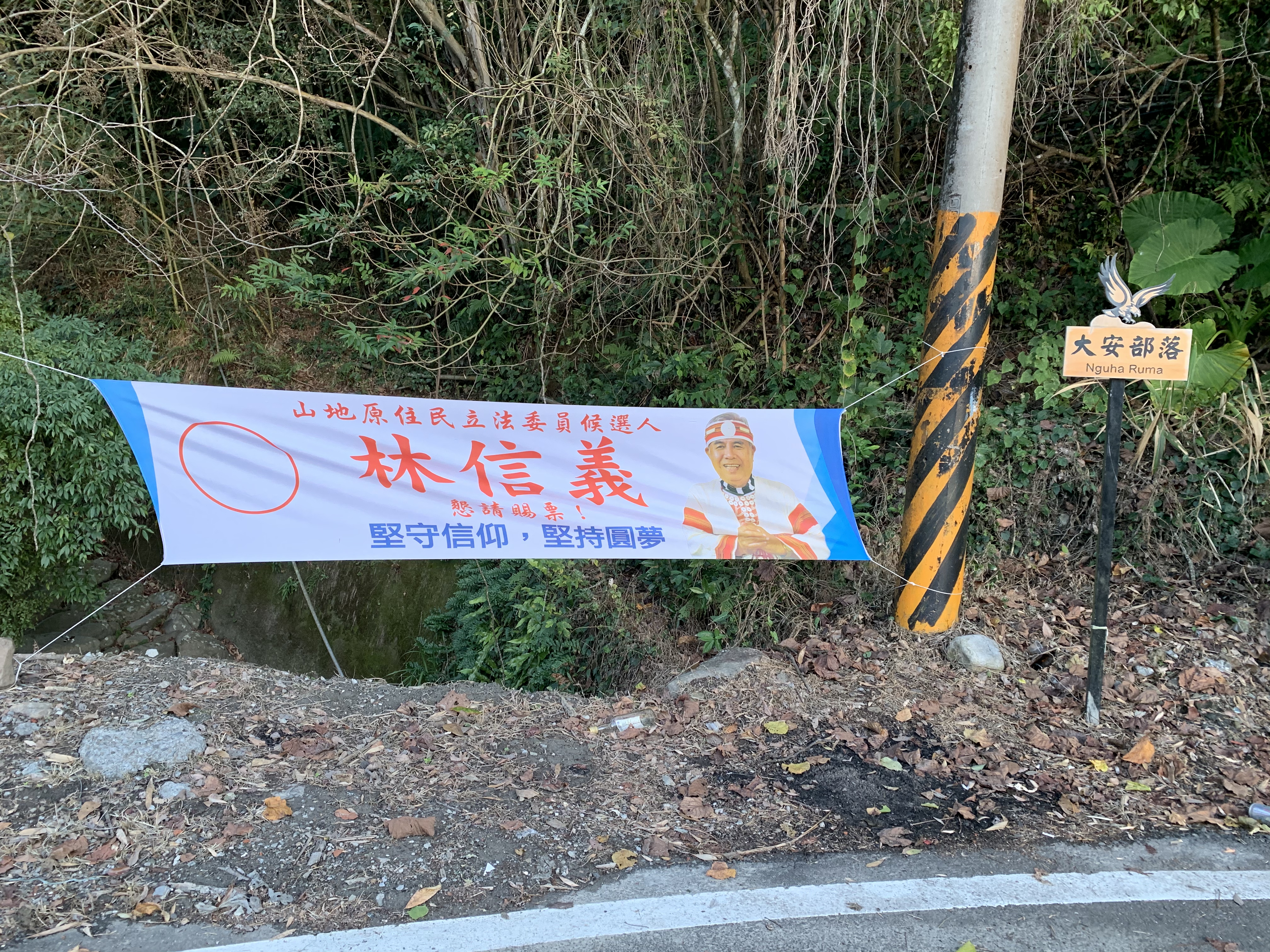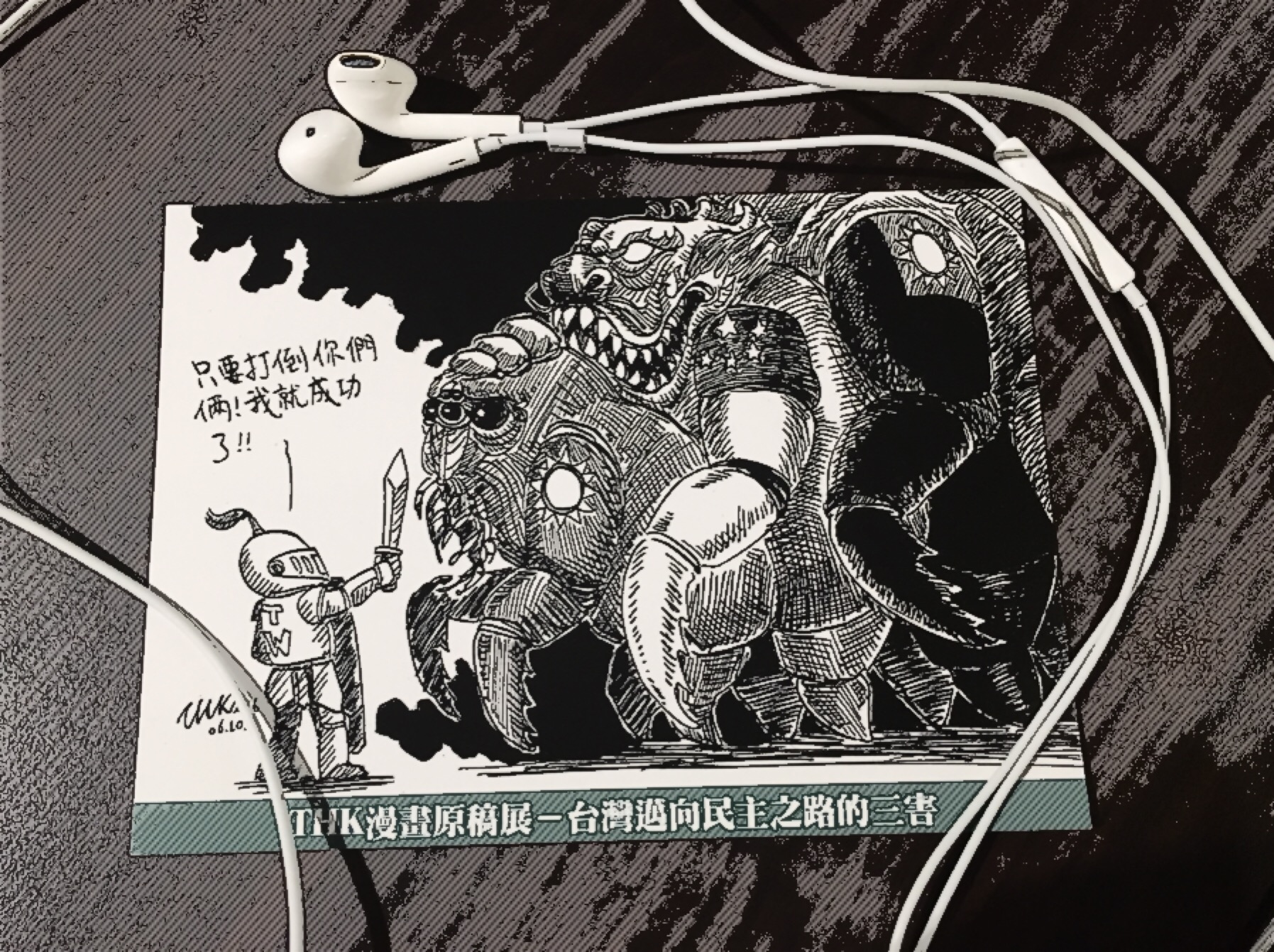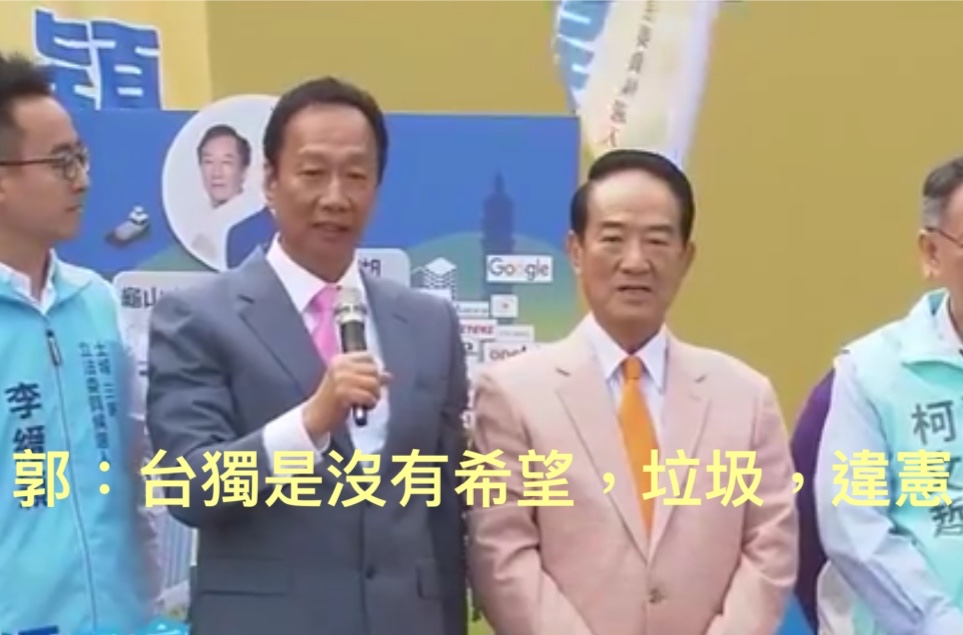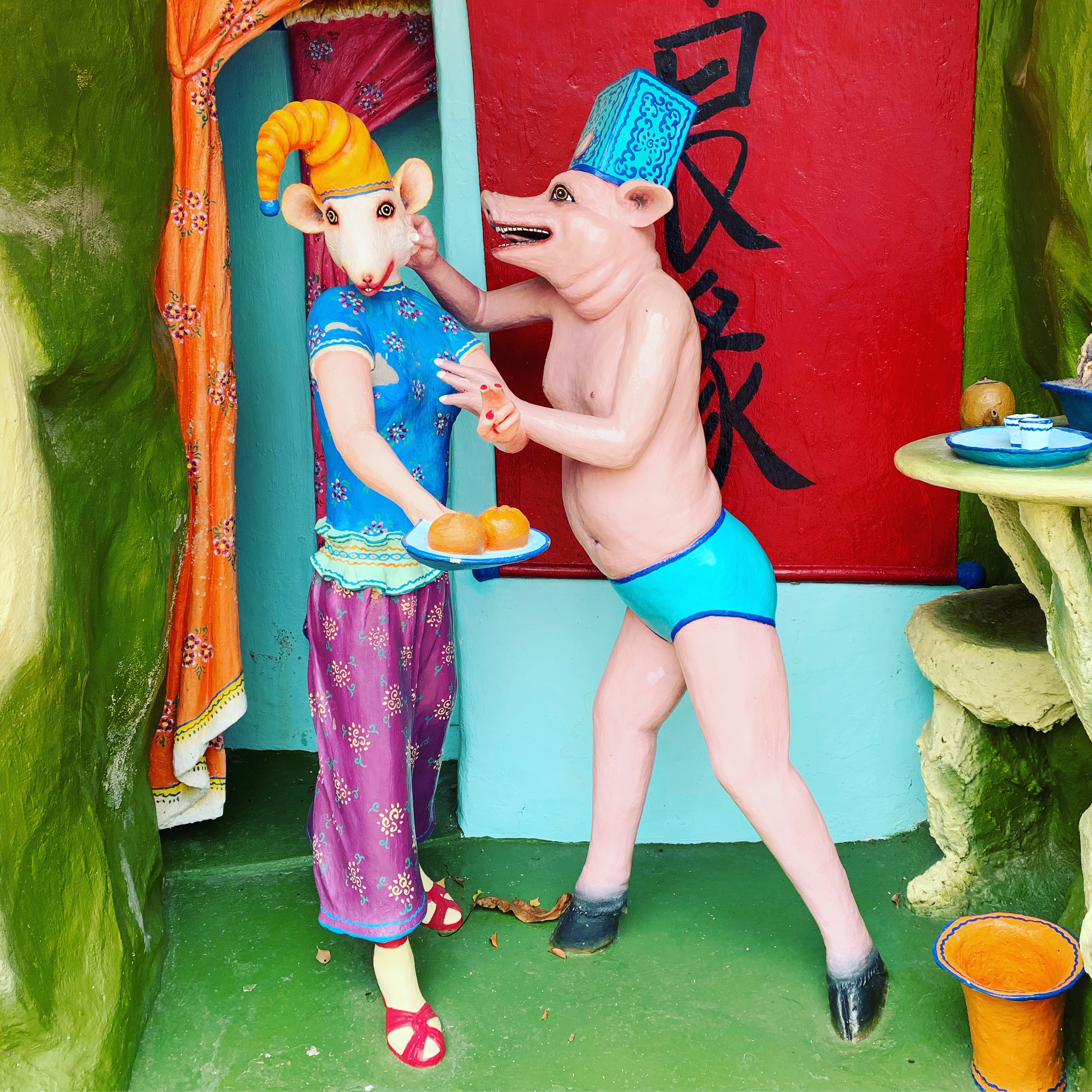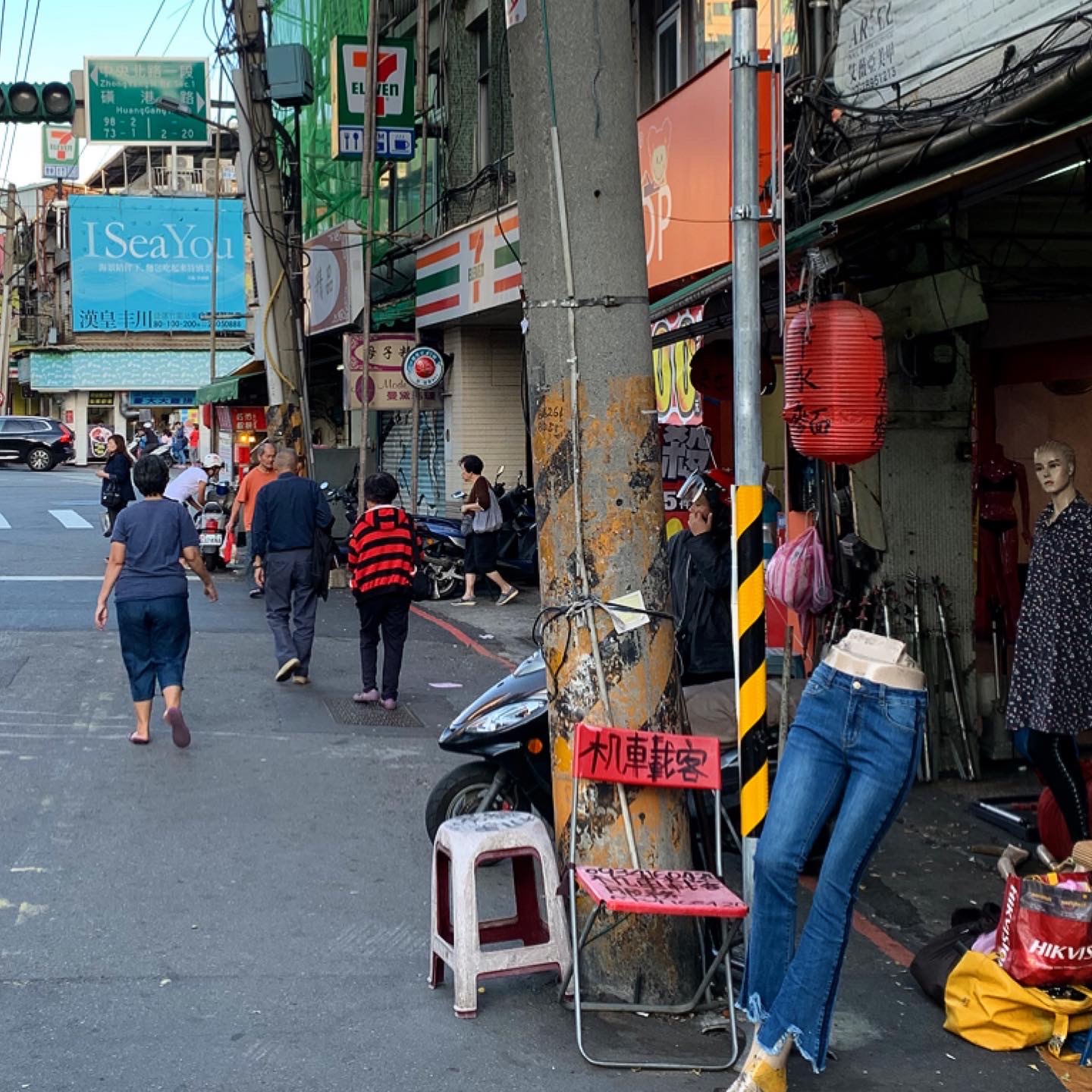 |
| I don't have a related cover photo so please enjoy this rural menagerie |
It is so frustrating, honestly, to read a well-intentioned piece that interviews mostly good people (I'm iffy on Jason Hsu) to try to make a point I generally support. Then to open it up and realize it's full of little inaccuracies and bad backgrounding that render it unsharable - and then to see all your friends sharing it, when it's really not that great.
I don't really want to go up against pieces like this as I'd like to see more coverage of what Taiwan and Taiwanese think from the international media. But I can't just blindly support journalism where I think the execution is somewhat poor, either.
This particular piece by Anna Fifield in the Washington Post gets better towards the end - almost all of my criticisms are aimed at the first half. Let's take a look at a few of these problems, hopefully as an informative tour of how to do a better job writing about Taiwan.
(I have to run off now - I'll try to populate this with more links to support my points later.)
First, there's the title:
Taiwan’s ‘born independent’ millennials are becoming Xi Jinping’s lost generation
Taiwan's millenials aren't Xi Jinping's anything.
They are Taiwanese and what they think or do is based on their lives and perspectives, not what Xi Jinping thinks. Xi is irrelevant to their daily existence except as a kind of weird scary dude in the background. Why are we starting this off by framing it through the eyes of China?
But let's not linger on that - often writers don't get to choose the title. This is bad, though, and whoever wrote it should feel bad.
TAIPEI, Taiwan — The prospect of a “one country, two systems” arrangement for Taiwan — bringing the democratic island under Chinese control while largely preserving its autonomy — has never seemed realistic to lawyer Hsu.
The first issue is fairly minor, but worth noting. "One country, two systems" would not "largely preserve" Taiwan's autonomy. The Chinese Communist Party has already made it clear that to them, "one country, two systems" means Taiwan can keep only the aspects of law and society the CCP deems "legitimate", such as property ownership and personal religious belief (though even the latter is doubtful given how they treat their own people). They have never included "democracy" or "human rights and freedoms" in the model.
With Tsai’s reelection, the divide between millennials who want an independent Taiwan and older generations who have generally been more amenable to Communist-run China will only grow wider. Perhaps irrevocably so.
This isn't wrong on its face - older voters are indeed more likely to vote for pro-China candidates and argue that we need closer ties to "the mainland" (a term that is commonly interchanged with "China" without implying support for unification, but I've noticed has been increasingly aging out of use by younger Taiwanese).
However, not even older Taiwanese are particularly in favor of unification - they've just been convinced that being "closer" to China isn't a Chinese strategy to render Taiwan so economically dependent on China and devoid of global recognition that they could not possibly remain sovereign forever. The younger generation are smart enough to see through this tactic. Some older voters do favor unification as "the ROC re-taking the Mainland". They are delusional.
This is not "perhaps" irrevocable. It is irrevocable. Once the curtain is drawn back it's impossible to un-see the truth.
“Taiwan has not been ruled by China for one day or for one minute or even for one second in our lifetimes,” said Miao, a 31-year-old pro-independence member of Taipei’s City Council, adding that her conservative father is more bothered by her stance toward China than by the fact she’s lesbian.
I hate to criticize Miao Poya as she's one of my personal heroes, but it would have been more accurate to leave off "...in our lifetimes". Taiwan has never been ruled by China as it exists today, and the "China" that held colonial power in Taiwan just cannot be said to be the "same" China (nor was it outright rule - more like colonial control of part of Taiwan) that exists today. Therefore, Taiwan has never been ruled by China, period.
Unlike many of their grandparents’ generation, who fled the Communists on the mainland seven decades ago, or their parents, who grew up under authoritarian rule, young Taiwanese have never known anything other than democracy and pluralism.
This is not totally untrue - the parents of the current zeitgeist generation knew dictatorship; the youth never did. But it is misleading - "many" is wrong. In fact, only a small minority of their grandparents' generation fled China after losing to the Communists. A few million KMT diaspora showed up. Taiwan already had a population much larger than that - most of today's generation has much deeper ancestral ties to Taiwan.
Why do articles like this always assume that hardly anybody lived on Taiwan before the KMT showed up? It's true that that wave of refugees had disproportionate privilege once their government colonized Taiwan, and therefore disproportionate impact on 20th century society, but they were in fact a fairly small minority.
Taiwan has been politically separate from the mainland since the nationalist Kuomintang, or KMT, fled to the island when the Communist Party established the People’s Republic of China in 1949.
This is flat-out wrong.
Taiwan and China were politically unified, officially at least, for a few short years in the 1940s. Within two years of the KMT arriving in Taiwan in 1945, unrest kicked up in both Taiwan and China (228 and its aftermath in Taiwan, the civil war in China). By 1949 - just four years later - the ROC had lost control of China, and still could only said to be 'occupiers' of Taiwan as there was no legal basis for their continued rule (an issue which still has not been solved). They were not invited here by Taiwan; they came from a foreign country and set up a government. In effect, they were just another wave of colonizers.
Before that, Taiwan was a colony of Japan. For 50 years. Why do people always forget that?
And before that, it was a colony of the Qing, who were not considered Chinese at the time. It's hard to say definitively that Taiwan could be considered "a part of China" from that history. As I've written:
Arguably, Qing Dynasty China might be considered a Manchu colonial holding, as was Taiwan. Moreover, the Qing only controlled the western part of the island, which for most of that period was not considered a ‘province’ in its own right. Was there one China under the Qing Empire or were there two colonial holdings, Taiwan and China? That’s a discussion worth having for a clear historical perspective.... [note: I've edited this slightly from the original].
It is true that from 1945–1949 the ROC “controlled” both Taiwan and China. Yet China was torn asunder by civil war, and ROC “control” of Taiwan was a postwar occupation conducted at the behest of the wartime allies as their representative....
To boil that complicated history down to “split in 1949” makes it easier to write succinctly, but also implants in readers’ minds the idea that for a significant period of time before 1949, Taiwan and China were part of the same country. That is simply not the case.
How many times do we have to keep repeating this for well-meaning journalists to get the memo and stop writing about Taiwan as though it had been a part of China before 1949?
Here's my suggestion: "Taiwan, first colonized by the Qing dynasty and later by Japan, was briefly ruled as a part of China from 1945-1949, before the ROC government fled China following their defeat by the Communists."
That's short and accurate, unlike the garbage Washington Post allowed in here.
“This wave of democracy is not stopping,” he [Jason Hsu of the KMT] said. “There is no going back. The KMT is also realizing this. We can have different opinions in how we deal with China, but we all have concerns about democracy.”
Oh, Jason. You are so deluded about your own party and so very, very disappointing. You really don't see how many of them are quiet (or not-so-quiet) annexationists, because they think they would personally benefit? You still don't think Chinese money is pouring in to influence the media and bolster the funding of KMT candidates?
I support the idea that KMTers/pan-blue believers should get a say in pieces like this, so we can juxtapose their views with the pro-Taiwan narrative we know so well as allies. I can see why Hsu is a popular choice - his quotes appeal to moderation and sense, and make the KMT more palatable.
But do the people who quote him realize that his views don't actually represent KMT beliefs more generally, and that he's something of an outsider in his own party?
Then there's this:
Some 60 percent of Taiwanese ages 20 to 34 now support full independence, up 10 points from a year ago, according to an Academia Sinica poll.
It's not wrong. But more could be said here - the other 40% don't support unification, they support "the status quo". Most people who support that are aware it can't last forever, and some even understand that the longer we continue it, the more time we give China to quietly (or not-so-quietly) attempt to interfere in Taiwan's economic and political systems. Of those, most lean towards eventual independence, not unification.
For almost all Taiwanese, the status quo is independence as Taiwan is sovereign in its current state. The goal for the vast majority has always been independence, with the only question being "what form should it take" and "how long should we wait". It's misleading to imply that support for independence stops at 60%, even though the statement itself is not wrong.
It would also have been smart to note that an even larger number of people identify as only Taiwanese, or as primarily Taiwanese. Those poll numbers exist.
The rest of the article is better - at least, it's good enough that I don't need to pull quotes and tear them down.
But man, in an attempt to clarify for the world that Taiwanese do not see themselves as Chinese and almost certainly never will, they sure got the background on this one wrong.

